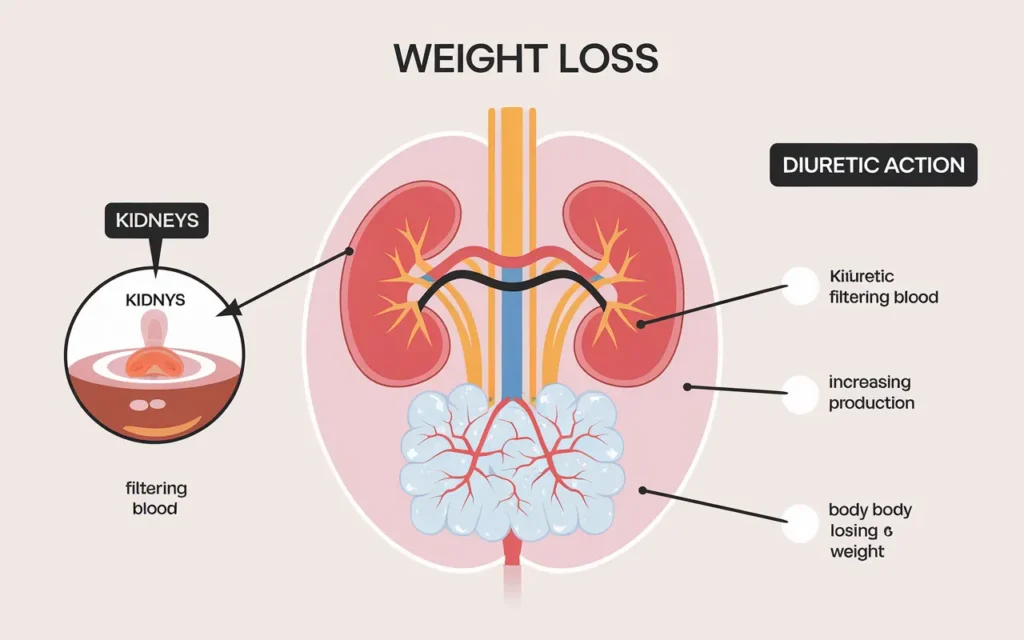Water Pills for Weight Loss: Comprehensive Guide
Introduction
Water pills for weight loss have become a popular topic in the quest for quick and effective weight management solutions. This comprehensive guide aims to shed light on how water pills can aid in weight loss, their benefits, potential risks, and alternatives to consider.
How Water Pills for Weight Loss Work

Water pills for weight loss function by promoting the elimination of excess water from the body. They are classified as diuretics and are commonly used to reduce water retention, which can lead to a temporary decrease in body weight.
Mechanism of Action
Water pills work by increasing the amount of urine produced by the kidneys, helping to flush out excess sodium and water from the body. This reduction in fluid can lead to a noticeable decrease in weight, particularly in cases of bloating or edema.
Types of Diuretics
- Thiazide diuretics: Often prescribed for high blood pressure and fluid retention.
- Loop diuretics: More potent, used in cases of severe fluid retention.
- Potassium-sparing diuretics: Help the body retain potassium while eliminating sodium and water.
Types of Water Pills for Weight Loss
Understanding the different water pills for weight loss is essential for choosing the right one for your needs. Each type has its unique benefits and potential side effects.
Over-the-Counter Water Pills
These are readily available without a prescription and are often used for mild water retention. Examples include:
- Dandelion: A natural diuretic found in many herbal supplements.
- Green Tea Extract: Known for its metabolism-boosting properties.
Prescription Diuretics
These are stronger and are prescribed by healthcare professionals for more significant fluid loss. Common types include:
- Furosemide (Lasix): A loop diuretic used for severe edema.
- Hydrochlorothiazide: A thiazide diuretic used for high blood pressure.
Benefits of Water Pills for Weight Loss
Water pills for weight loss offer several benefits, particularly for those looking to reduce water retention and achieve a slimmer appearance quickly.
Rapid Weight Reduction
One of the primary benefits is the ability to lose weight rapidly by shedding excess water, which can be motivating for individuals on a weight loss journey.
Reduction in Bloating
Water pills help reduce bloating by eliminating excess fluid, leading to a flatter stomach and reduced puffiness in the face and extremities.
Enhanced Physical Performance
For athletes, reducing water weight can enhance performance and endurance by decreasing the load on the body.
Risks and Side Effects
While water pills for weight loss can be effective, they come with potential risks and side effects that users should be aware of.
Dehydration
Excessive use of diuretics can lead to dehydration, causing symptoms like dizziness, dry mouth, and fatigue.
Electrolyte Imbalance
Water pills can disrupt the balance of electrolytes in the body, leading to issues such as muscle cramps, irregular heartbeat, and weakness.
Kidney Strain
Prolonged use of diuretics can put additional strain on the kidneys, potentially leading to kidney damage over time.
Blood Pressure Fluctuations
Diuretics can affect blood pressure, sometimes causing it to drop too low, resulting in hypotension.
Water Pills vs. Natural Alternatives for Weight Loss
When considering water pills for weight loss, it’s important to weigh them against natural alternatives that may offer safer and more sustainable results.
Herbal Diuretics
Herbs like dandelion and green tea act as natural diuretics without the harsh side effects associated with prescription medications.
Dietary Adjustments
Reducing sodium intake and increasing potassium-rich foods can naturally reduce water retention.
Exercise
Regular physical activity helps the body eliminate excess water through sweat and improves overall metabolism.
Effectiveness of Water Pills for Weight Loss
The effectiveness of water pills for weight loss varies based on individual health conditions, the type of diuretic used, and adherence to proper usage guidelines.
Short-Term vs. Long-Term Weight Loss
Water pills can lead to quick short-term weight loss by removing excess water, but they are not a sustainable solution for long-term fat loss.
Factors Influencing Effectiveness
- Dosage: Correct dosage is crucial for achieving desired results without adverse effects.
- Hydration Levels: Maintaining adequate hydration can enhance the effectiveness of diuretics.
- Underlying Health Conditions: Conditions like hypertension or kidney disease can affect how well water pills work.
Proper Usage and Dosage of Water Pills for Weight Loss
Understanding the proper usage and dosage is vital when considering water pills for weight loss to maximize benefits while minimizing risks.
Consulting a Healthcare Professional
Always consult with a healthcare provider before starting any diuretic to ensure it’s appropriate for your health status.
Recommended Dosages
Dosages vary based on the type of diuretic and individual health needs. It’s essential to follow prescribed guidelines or product instructions carefully.
Monitoring and Adjustments
Regular monitoring of electrolyte levels and kidney function is necessary to adjust dosage and prevent adverse effects.
Duration of Use
Water pills should typically be used for short-term purposes under medical supervision to avoid long-term health complications.
Expert Advice on Using Water Pills for Weight Loss
Seeking expert advice is crucial when considering water pills for weight loss to ensure safe and effective use.
Medical Professionals’ Recommendations
Healthcare providers often recommend diuretics only for specific medical conditions and not solely for weight loss.
Nutritionists’ Perspective
Nutritionists emphasize the importance of a balanced diet and regular exercise over the use of water pills for sustainable weight loss.
Patient Testimonials
While some individuals report positive experiences with water pills, others caution against their use without proper guidance.
Conclusion
Water pills for weight loss can offer quick results by reducing excess water in the body, but they come with significant risks and are not a sustainable solution for long-term weight management. It’s essential to consult with healthcare professionals, consider natural alternatives, and focus on healthy lifestyle changes for effective and safe weight loss.
Always prioritize your health and well-being over rapid weight loss methods to achieve lasting and meaningful results.
References